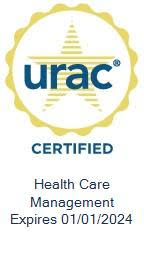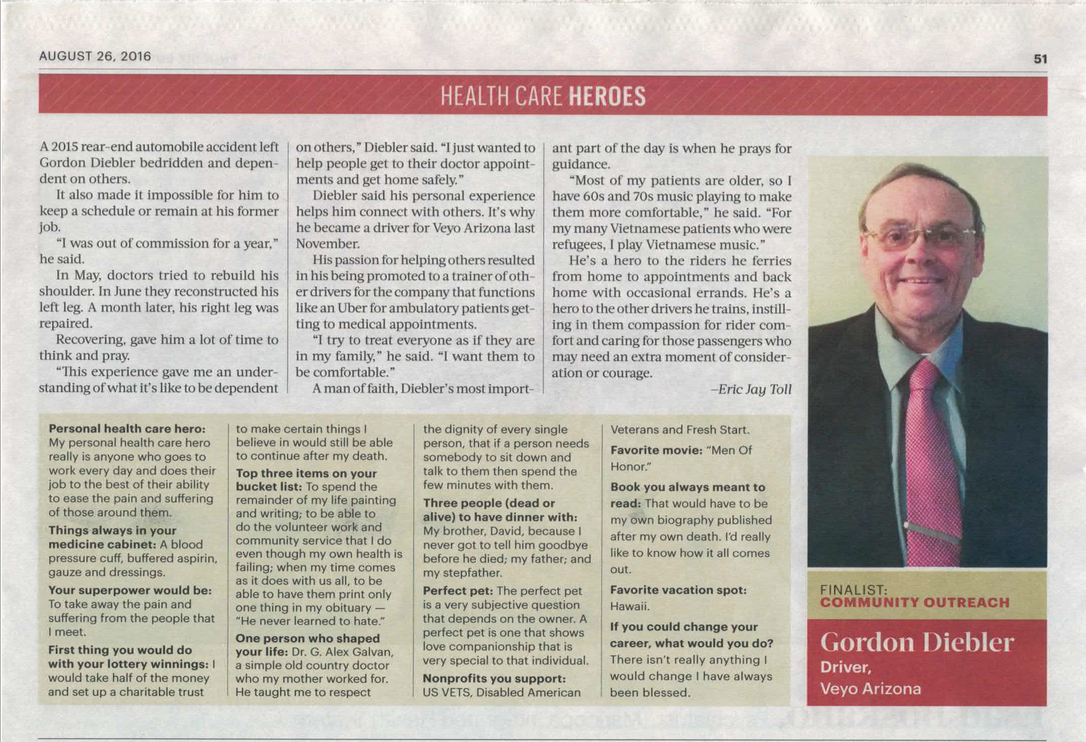Can a TNC join the NEMT space?
August 26, 2016
It’s a popular topic today in healthcare: can a TNC (Transportation Network Company) survive in the NEMT industry? To dig into this answer, let’s first take a look at TNCs.
What is a TNC?
TNCs, or Transportation Network Companies, use online-enabled platforms to connect paying passengers looking for transportation with drivers using their own non-commercial vehicles. TNCs are also known as ridesharing or ride-sourcing companies.
In the last few years, TNCs have seen exponential growth and have been behind many of the major technological breakthroughs in the transportation space, including consumer apps, GPS-enabled route optimization, and electronic payments.
Though TNCs have changed the way consumer passengers travel, they’ve yet to make a big mark in the NEMT industry for several reasons. What’s kept TNCs out of the NEMT industry?
- Non-emergency medical transport (NEMT) is about much more than picking up and dropping off a passenger. (Learn more about NEMT here.)
- The NEMT industry transports a wide cross section of passengers who possess a varying degree of physical ailments, and thus requires a high level of safety and security during all parts of the process.
- HIPAA, federal healthcare regulations, and ADA requirements can be prohibitive to existing TNC models.
NEMT is about more than just the car ride…
In the consumer transportation realm, TNCs focus on delivering service to consumers who are, generally speaking, ambulatory, or able to walk without assistance. For the most part, these consumers private pay for this service in dense urban areas. Unlike consumer TNCs, Veyo specializes in the complex systems and infrastructures that deliver a taxpayer-funded benefit to an extremely diverse set of needs and geographies. This includes supporting various methods of booking (call center, app, web), verifying eligibility, serving a variety of geographies and modes of transportation, and ensuring that members get the highest quality, most appropriate type of transportation for their needs. It also includes detecting and mitigating for fraud, waste and abuse (FWA), monitoring for quality and on-time service, and coordinating and sharing that information with healthcare organizations, to better understand utilizations and their impact to health and cost. We also monitor and ensure quality and regulatory compliance of the benefit on behalf of our healthcare organization clients.
NEMT management companies, often referred to as brokers, manage all aspects of the patient logistics process, including:
- Member management: Ensuring member contact information, trip history, and Medicaid information is up-to-date. This demographic can be highly “nomadic,” meaning they may move residences often, or in some cases have no residence at all. Regardless, if they qualify for Medicaid, they need to be able to access care through NEMT, and the broker must be able to facilitate that reliably.
- Eligibility: Ensuring that a member is eligible for the benefit and is going to a medically necessary appointment.
- Appropriate mode determination: Determining which type of transportation (public transit, mileage reimbursement, sedan, wheelchair, stretcher, etc.) is most appropriate, safe and cost-effective.
- Provider networks and credentialing: Creating fully credentialed provider networks that partner with the broker to handle members in all regions, at all times of the day or night.
- Call center and data entry management: Accepting, scheduling, and dispatching trip requests in any form (phone, fax, digital, or web) and managing member requests and changes.
- Trip routing and scheduling: Coordinating a variety of providers and their fleets to ensure all qualified members are picked up and delivered on time (for both scheduled and will-call trips) safely—and with attention to their needs.
- Grievances: Receiving, investigating, analyzing, and reporting all member complaints and service issues.
- Reporting: Creating and distributing detailed reports for the Managed Care Organization (MCO) or State agency in alignment with Federal and State guidelines.
- Fraud, waste, and abuse (FWA): Ability to identify and prevent member or providers who are attempting to commit fraud or who might be using the benefit inappropriately or incorrectly.
NEMT participants can’t all jump in a rideshare vehicle.
NEMT benefits are used by participants for a variety of reasons, including: lack of a valid driver’s license, lack of a working vehicle, geographic isolation, or the inability to take traditional transportation for physical, mental or developmental reasons. Participants vary widely in income, age, demographic, comfort with technology, geographic location, and independence. Many participants require specialized transportation such as stretcher vehicles or bariatric wheelchairs. Others may require a medically-necessary attendant or a therapy or service animal to join them on their trip.
TNC drivers and their vehicles are often only appropriate for passengers who are ambulatory, and require no assistance to recognize their vehicle and get in and out on their own. Picking your passengers that are appropriate for their capabilities thus restricts their ability to serve all patients that require transportation. And for passengers utilizing NEMT services, they must be picked up on time and transported to their medical appointment on time, every time, in order to receive their healthcare treatment. In many cases, these members are going to dialysis or cancer treatment, which cannot be missed. Studies have shown that one missed dialysis appointment can increase the probability of hospitalization by more than 400 percent.
Healthcare requirements exist to protect the health and safety of members.
HIPAA, commonly known as the Health Insurance Portability and Accountability Act, mandates industry-wide standards for healthcare information and requires the protection and confidential handling of protected health information (PHI). Providers (and their drivers) that are transporting NEMT participants must be HIPAA-certified, often must be CPR- and First Aid-certified, and undergo a variety of customer service and ADA training. Most states have additional requirements regarding insurance, fingerprinting, drug testing, background checks, special training, and other safety measures.
These, and all the above described requirements, are often prohibitive to TNCs as they have created less stringent qualifications for their drivers in order to be able to rapidly expand their supply of vehicles on the street. Instead, they suggest that ratings after the fact are sufficient to judge whether driver and vehicle are appropriate for the service.
Veyo is a Complete Transportation Broker.
For the past several decades, the NEMT industry has been plagued with many of the same problems that made the taxi industry ripe for the TNCs:
- A fixed supply of available vehicles creates an inability to flex supply to match demand. This inability results in many passengers being left stranded during peak times.
- Like taxi drivers, providers are often forced to work for unsustainable rates by the brokers, resulting in low-quality, high turnover, and under-qualified drivers and vehicles.
- A lack of innovation in technology, resulting in inefficiencies, high costs, and unreliable data.
- A complete lack of transparency for the passenger as to whether their driver is coming, and just as importantly, a lack of transparency by the broker in knowing in where every vehicle is at all times.
Veyo was built as a next generation healthcare logistics company. We focus on transforming the NEMT model from the ground up with technology at our core. We’re streamlining and optimizing everything from member eligibility to trip routes—we are a full-service transportation broker, covering everything from implementation to trip management to reporting.
We’re solving NEMT issues with next generation technology, including:
- Predictive analytics and our Virtual Fleets, which allow for scalable supply and allow us to match supply with demand.
- GPS-tracking and real-time data allow us to see exactly where each car is and help us solve problems before they occur.
- Provider tools which allow for simplified trip dispatch and provider payments, removing the need for fax machines and
Veyo is currently managing more than 2.5-million members and operating in six states: Arizona, California, Colorado, Idaho, Michigan, and Texas. Our fleets are completing more than 15,000 trips-per-day and, to-date, we’ve completed a whopping 2.1-million trips.
Stan Sipes
Stan is an entrepreneur and sales executive with more than 35 years of successful executive experience in consultative sales and business development management as a CEO, entrepreneur, and senior level leader. Stan provides direction to Veyo’s overall business development and customer support efforts by maximizing the expertise of Veyo’s highly-talented, dedicated people. He has global experience with a Fortune 50 company, as a turnaround specialist founding a software company, and as a consultant and advisor to over 300 companies to assist in growth strategies. Stan has a proven track record as a mentor, guiding and implementing customer relationship strategies with integrity. Stan graduated from the University of Illinois with a B.S. in Civil Engineering.




